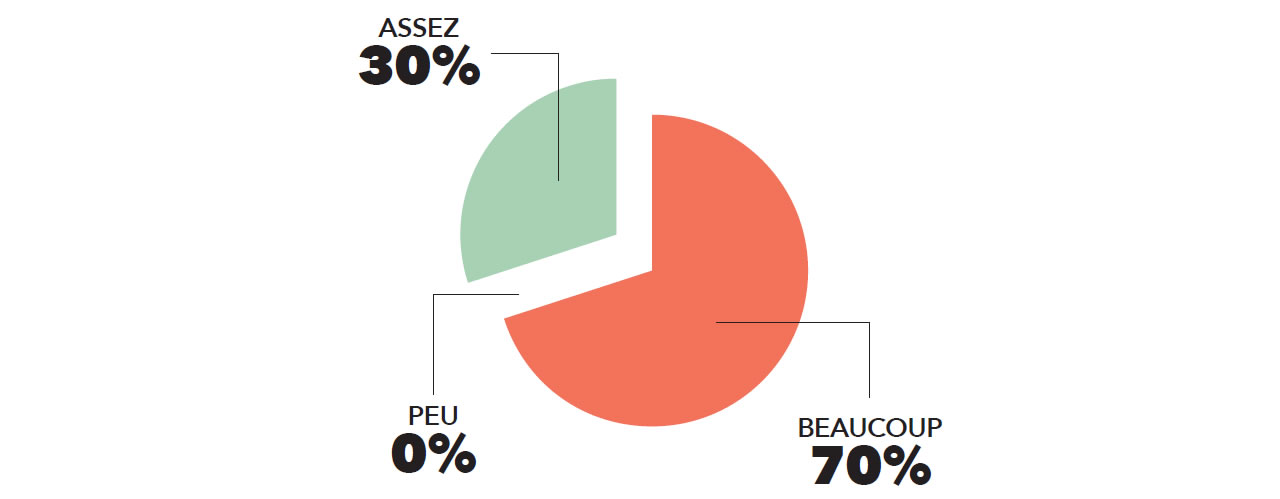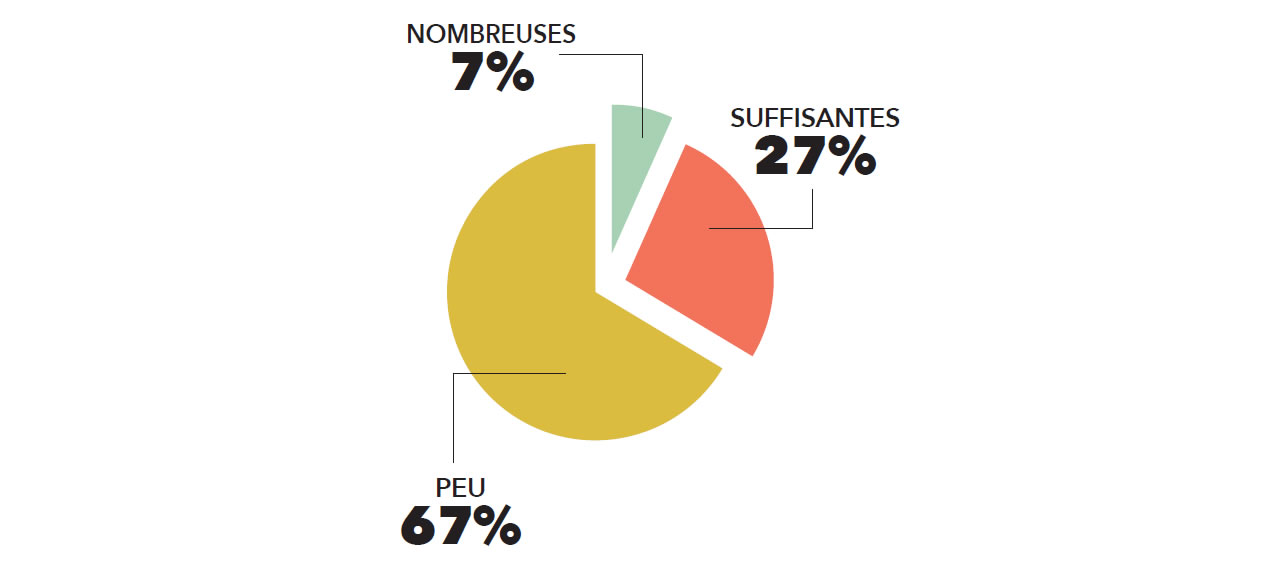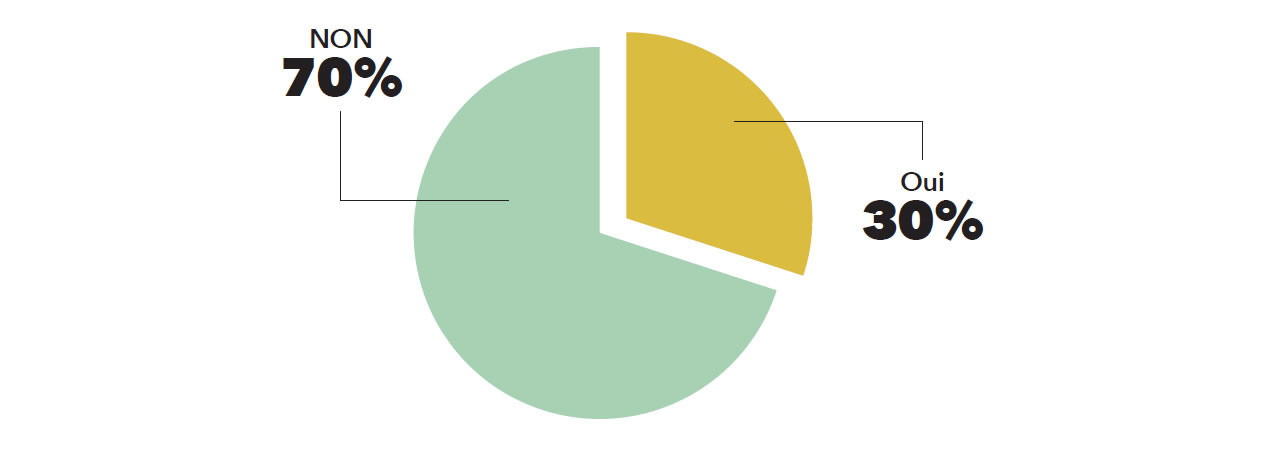
La grande majorité des analystes demandent au ministre des Finances de respecter son engagement de ramener la dette du secteur public à 60 % du PIB dans deux ans.
1. Quel aura été l’impact du dernier budget sur la croissance économique ?
| TRÈS Positif | 0% |
|---|---|
| ASSEZ Positif | 23% |
| PEU Positif | 77% |
Impact peu positif du budget de 2018-2019
Comme l’année dernière, à pareille époque, 77% des sondés estiment que le budget de la présente année financière aura eu un impact peu positif sur la croissance économique. C’est que « the Budget had no innovative ideas whatsoever and sorely demonstrated that the minister of finance had no understanding of global economic forces driving commerce and investments. He has already chosen to start his re-election campaign by announcing only social measures rather than economically productive measures that would have benefitted the country and created value-added jobs in the medium to long term. » Du reste, « tighter than expected fiscal and monetary policies, when looking at both Treasury bill rates and the trade weighted exchange rate, meant that the economy could not gather steam ».
2. Jusqu’à quel point le budget de 2019-2020 sera-t-il électoraliste ?

Le prochain budget sera très électoraliste
Sept répondants sur dix craignent que le prochain budget soit très électoraliste. Ce sera un « electoral budget with many giveaways ». Le sentiment qui prédomine est que « the incumbent government is likely to try and maximize on the budget as an opportunity for implementing populist measures ». D'autant que « the 1st May political rallies have scared the pants off the governing party. Now that they are in a desperate situation, which they created for themselves, they will take desperate measures and try to butter up the voters and save their hides. »
3. Combien de bonnes mesures économiques attendez-vous dans le prochain budget ?

Peu de bonnes mesures économiques en vue
Anticipant un budget électoraliste, deux tiers des sondés s’attendent à peu de bonnes mesures économiques. Pour un analyste, « in four successive budgets, the government has been unable to produce any good economic measures, relying instead on consumer spending to support the economy. The result is that our country is now rapidly slipping towards an economic abyss that will take us years to dig ourselves out. Unless the minister of finance puts the country first, there will be no good economic measures. » Un économiste confirme que « the extent to which comprehensive and appropriate economic policies and reforms will be announced in the next Budget remains to be seen, the more so that it is being expected that the pronouncements will put much emphasis on social measures in view of the forthcoming general elections ».
4. Etes-vous favorables à ce que l’impôt sur les sociétés passe de 15% à 5% ?

Maintenir l’impôt sur les sociétés à 15%
Sept sondés sur dix ne sont pas d’accord avec la proposition de Business Mauritius de faire baisser l’impôt sur les sociétés (Corporate Tax) à 5%. Car « greater inequality will be created. What we require is better use of the tax remittances and to address the issues raised by the Director of the National Audit Office. » Et puis, « such a measure can be a double-edged sword, for the tax base should be widened to ensure that government revenue is not sacrificed ». Un analyste qui y est favorable pense que « while there might, from a socio-economic development angle, be a case to reduce the corporate tax and boost activities in the current challenging operating environment and the restrained real GDP growth path, the magnitude to which the decline can be configured needs to be properly ascertained in view of the current pressures on the country’s fiscal balance and debt dynamics ».
5. Etes-vous pour que l’éligibilité à la pension de vieillesse commence à 65 ans ?

La pension de vieillesse à partir de 65 ans
La pension de vieillesse est accordée par l’Etat à partir de 60 ans alors même que l’âge légal de la retraite est de 65 ans. La grande majorité des sondés estiment nécessaire de ramener l’éligibilité à la pension de l’Etat à 65 ans. Car « this seems to be the most appropriate action to take, especially considering the weight of the pension on the budget and the ageing population ». Cependant, « we still need special targeted social assistance to sick and handicapped people ». Un analyste suggère que, « as the life expectancy of Mauritians improves, the white-collar workforce should continue to work until the age of 65. For blue-collar workers involved in physical efforts, the retirement age should be reduced to 60. »
6. Selon vous, réduire la dette du secteur public à 60% du PIB au 30 juin 2021 serait pour notre économie...

Respecter l’engagement sur la dette publique
Après avoir fixé comme objectif de réduire la dette du secteur public à 60% du PIB au 30 juin 2021, le gouvernement voudrait le retarder de deux ans. Mais sept analystes sur dix affirment que respecter cette échéance serait bon pour notre économie. Sans doute « this is not feasible on current trend », mais « the government should definitely aim to reduce debt to tolerable levels », car « successive governments are increasingly leveraging on public debt, and if this is not matched with GDP growth, the economy is set to suffer considerably in the future ». Pour les autres, « such a target would put our economy in a catatonic shock as any economy needs time to readjust to a major reduction in government spending ».
7. Quelle orientation du Repo Rate prévoyez-vous à la prochaine réunion du comité de politique monétaire ?

Aucun changement du taux repo
Le comité de politique monétaire se réunira après-demain. La très grande majorité des répondants n’anticipent aucun changement dans le taux directeur. Pour sûr, « there is no business case to hike rate ». En revanche, « there is a slight possibility for a cut if the MPC decides to help the government in this electoral year ». Techniquement, « while it is true that the gross saving rate is deemed as low, it appears however that there might be some scope for the adoption of a more accommodative monetary policy stance by the Bank of Mauritius when making allowance for the low headline inflation rate and the restrained pace at which the overall economy is expanding. Besides, it is worth noting that monetary policy in several advanced economies is now foreseen to remain generally accommodative for a longer-than-previously anticipated period amidst weakening global economic activity. »
8. D’après vous, les élections générales se tiendront...
| Au TROISIÈME trimestre 2019 | 0% |
|---|---|
| Au QUATRIÈME trimestre 2019 | 73% |
| En 2020 | 27% |
Les élections générales cette année
La plupart des analystes sont d’avis que les élections générales auront lieu au dernier trimestre de l’année. On cite volontiers le mois de décembre. On ne se fait toutefois pas d’illusion : « The government is likely to be tempted to wait the maximum for its ongoing projects such as Metro Express to be partially completed before giving elections ». Pour le dire de façon cynique : « Hang in there at all cost and let us fill our pockets for as long as we can! »
Enquête d’opinion réalisée par PluriConseil du 6 au 8 mai 2019 auprès d’un échantillon représentatif de 30 analystes économiques et financiers.








